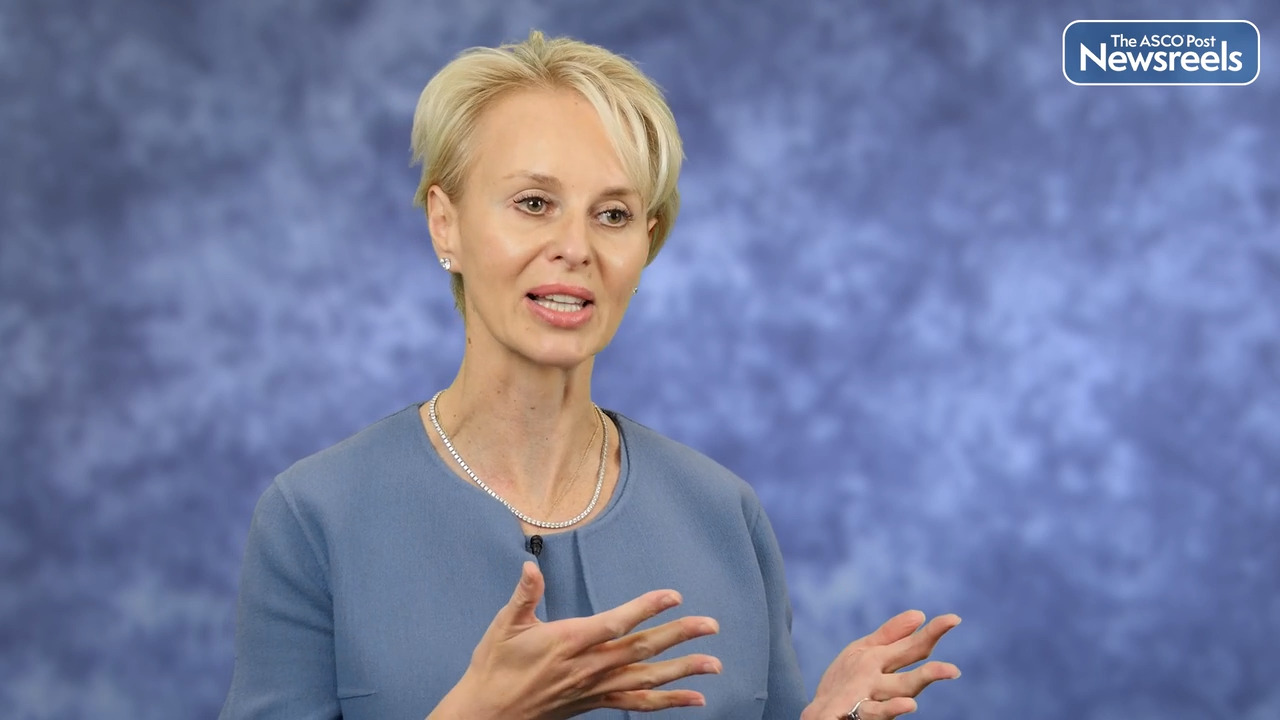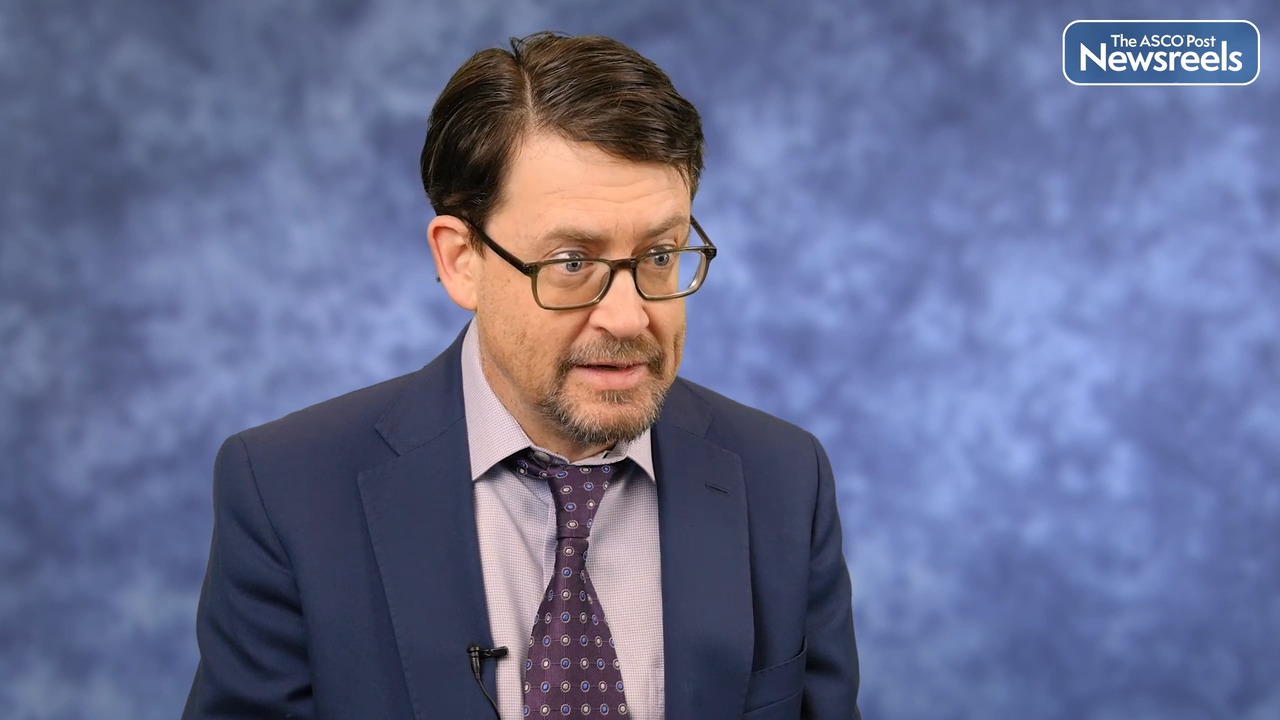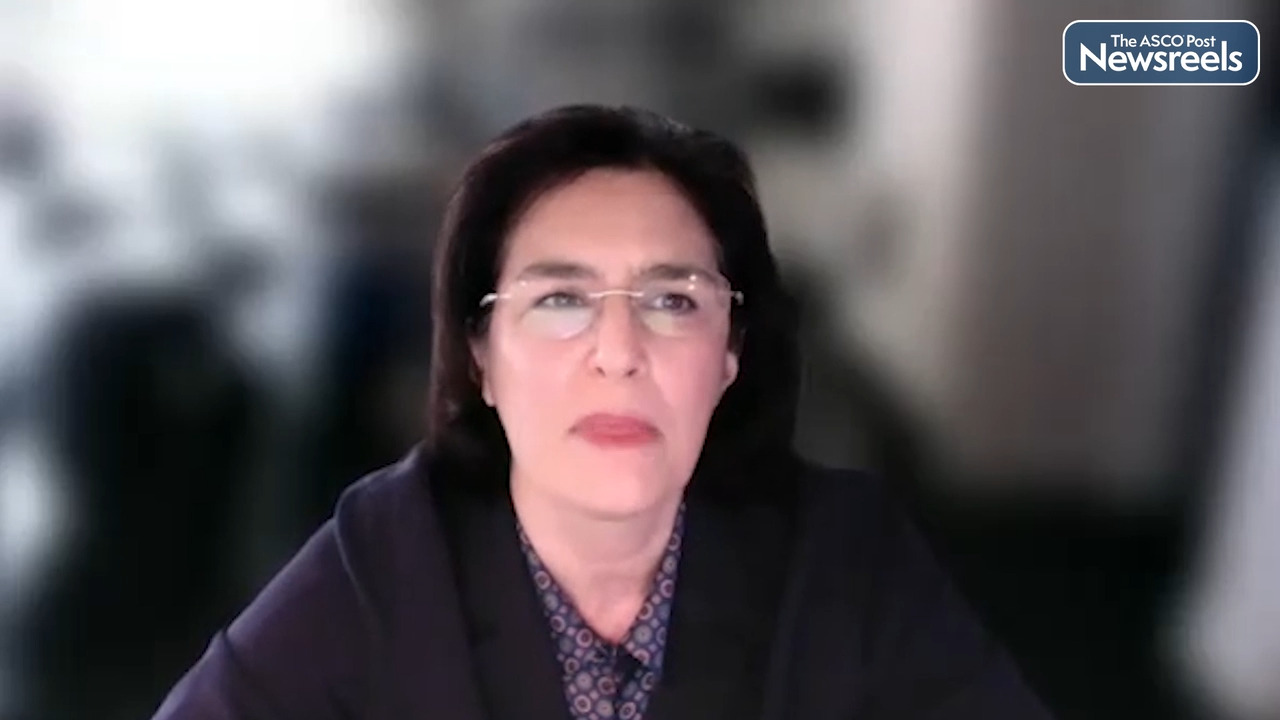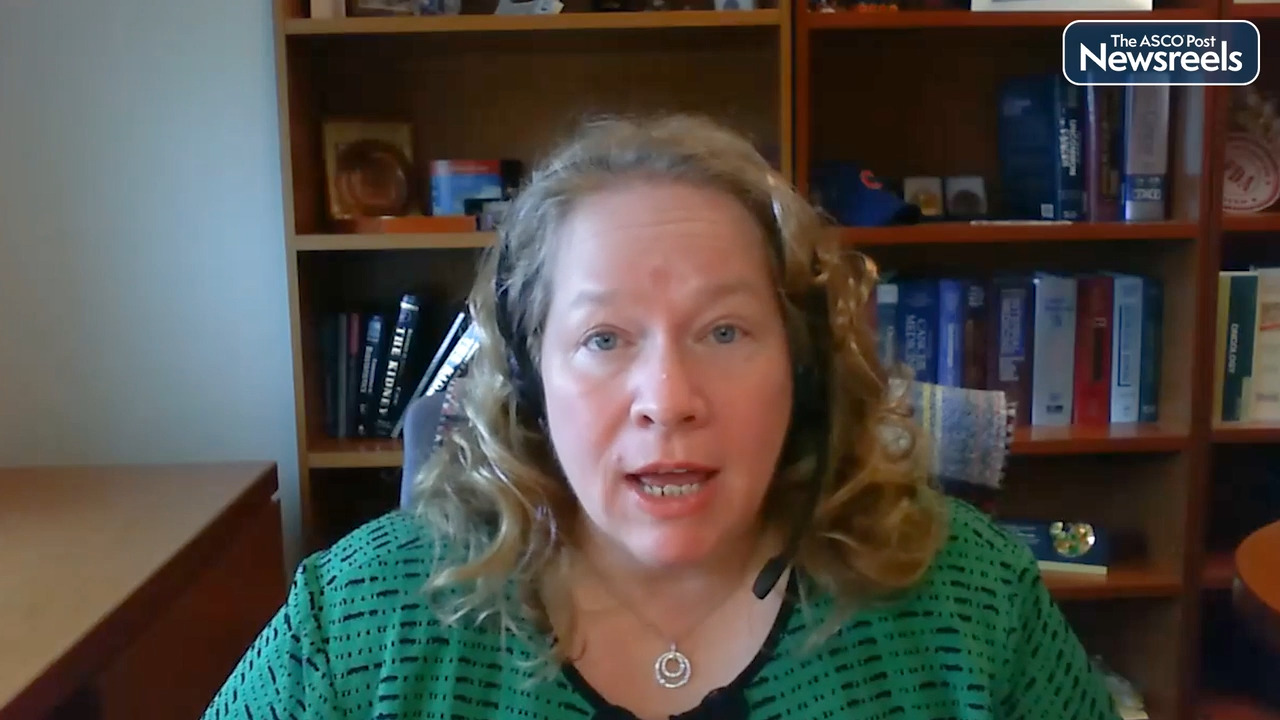Related Videos
Natalie Moryl, MD, on Managing Pain in Patients With Cancer
Natalie Moryl, MD, of Memorial Sloan Kettering Cancer Center, discusses severe cancer pain, a medical emergency that should be addressed with immediate intervention. The treatment plan, Dr. Moryl says, should include making a pain diagnosis; addressing reversible causes of pain such as spinal cord compression, fracture, or obstruction; selecting, titrating, and rotating opioids and co-analgesics; and routine screening for risks of opioid use disorder and mental health comorbidities.
Elena Ratner, MD, MBA on Sexual Identity and Function in Cancer Survivors
Elena Ratner, MD, MBA, of Yale Cancer Center/Smilow Cancer Hospital, discusses sexuality, intimacy, fertility, and menopause as important aspects of women’s cancer survivorship and the many effects of treatment on these issues. They often go unacknowledged in the medical community, Dr. Ratner says, because of a lack of knowledge and resources. She describes interventions, including holistic, hormonal, behavioral, psychological, and interdisciplinary approaches.
Michael K. Gibson, MD, PhD, on Metastatic Esophageal Squamous Cell Carcinoma: New First-Line Systemic Treatment Options
Michael K. Gibson, MD, PhD, of Vanderbilt-Ingram Cancer Center, discusses the importance of developing additional treatment strategies for patients with advanced or metastatic esophageal squamous cell carcinoma and describes the role of immune checkpoint inhibitors. Dr. Gibson also reviews the available evidence on the use of nivolumab in this patient population.
Ella A. Kazerooni, MD, on Lung Cancer Screening: Benefits and Challenges
Ella A. Kazerooni, MD, of the University of Michigan Rogel Cancer Center, discusses reducing cancer deaths in the United States by identifying patients at risk for lung cancer. Engaging with primary care physicians and facilitating referrals are keys to a successful lung cancer screening program, she says, as is working with a nurse care coordinator.
Arlene O. Siefker-Radtke, MD, on Urothelial Cancer: Emerging Therapies
Arlene O. Siefker-Radtke, MD, of The University of Texas MD Anderson Cancer Center, provides an overview of the emerging treatments for urothelial cancer, including several new agents in the antibody-drug conjugate and tyrosine kinase inhibitor classes. She describes the clinical activity and toxicities of enfortumab vedotin-ejfv, erdafitinib, and sacituzumab govitecan-hziy.





